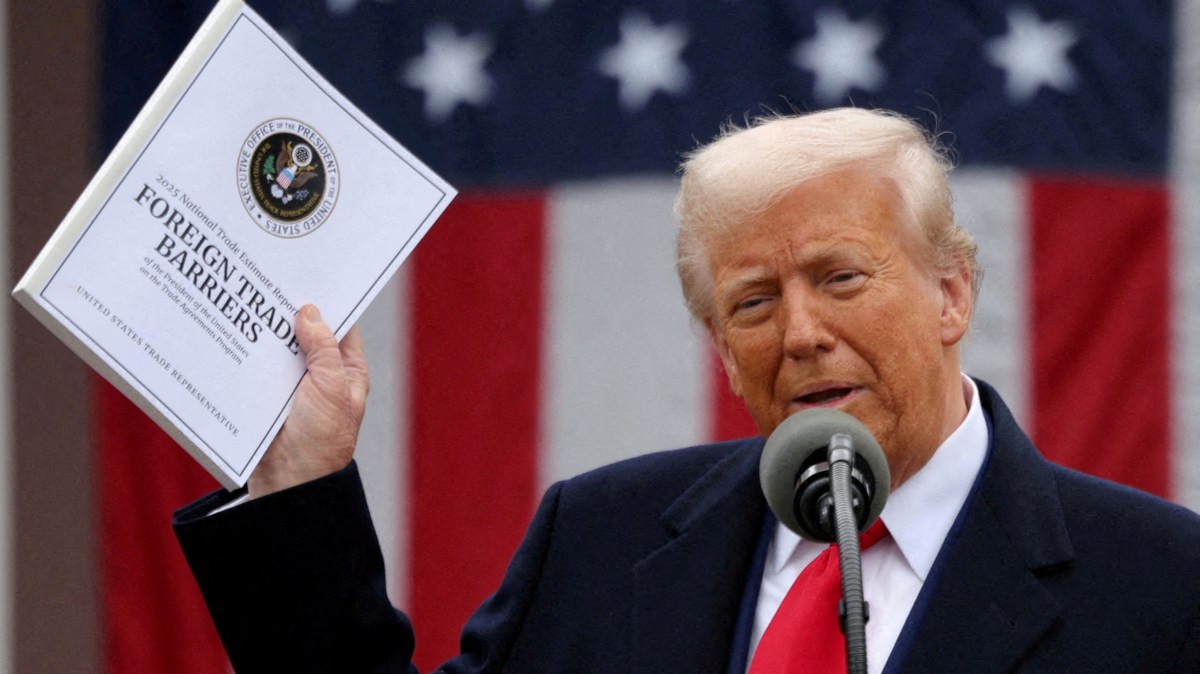UK listed companies have issued a record level of warnings over geopolitical tensions as they face higher trade costs under the Trump administration.
The number of profit warnings issued by public companies rose by 20 per cent to 59 in the second quarter of 2025, according to research from EY, as concerns over international affairs mounted on businesses.
Government policy changes and geopolitical uncertainties were cited as a leading factor behind 46 per cent of warnings to investors, up from 4 per cent in the second quarter of 2024. EY stated this was the highest percentage recorded for companies citing geopolitical issues in more than 25 years of its reporting on profit warnings.
There was a notable uplift in profit warnings after the United States threatened to impose wide-ranging tariffs on imports in April. The number of such warnings rose by 24 per cent year-on-year to 26 in April, with half of those companies blaming tariff threats and US economic disruption for their financial difficulties.
TT Electronics, a manufacturer of high-performance electronic products, and Clarksons, the FTSE 250 shipbroker, were among companies warning on profits due to tariff concerns.
Jo Robinson, turnaround and restructuring strategy leader at EY, said: “The latest profit warnings data reflects the scale of persistent uncertainty and how heavy it continues to weigh on UK businesses.
“While the announcement of global tariffs has clearly played a part in amplifying uncertainty, they are just one factor among broader geopolitical and policy upheaval. These pressures are often interlinked and, combined, they are having a significant effect on companies’ confidence, decision-making and spending.
TT Electronics, a London Stock Exchange-listed electronic components manufacturer, issued a profit warning due to tariff concerns eight days after the “liberation day” package
TT ELECTRONICS
“Whether the rise in profit warnings is cyclical or structural remains to be seen and we still expect earnings pressure to ebb and flow with the macroeconomic backdrop. As companies operate in a risk and forecasting environment that is challenging to navigate, they must adopt a measured, scenario-based approach that balances both agility and strategic clarity.”
Industrial support services and retail sector companies were responsible for a large number of the warnings in the second quarter, registering eight and four profit warnings respectively.
Businesses have faced an increase in labour costs this year after the rise in national insurance contributions for employees in April, which coincided with increases to both the national minimum wage and the national living wage.
Since October, payrolls across the economy have fallen by 184,700 and 70 per cent of job losses have occurred in the retail and hospitality sectors.
Silvia Rindone, an EY partner specialising in the retail sector, said that retailers would need to continue investing in technology even as they accommodated higher costs.
Rindone said: “Despite ongoing pressures, including the rise in national insurance contributions and the national living wage, alongside tariffs, investment in technology including AI remains essential. The winners will be those who get the basics right, such as range, service and pricing, whilst continuing to build for the future with leaner models, sharper propositions and digital resilience.”
Profit warnings citing contract and order cancellations or delays remained at a record level in the second quarter.

